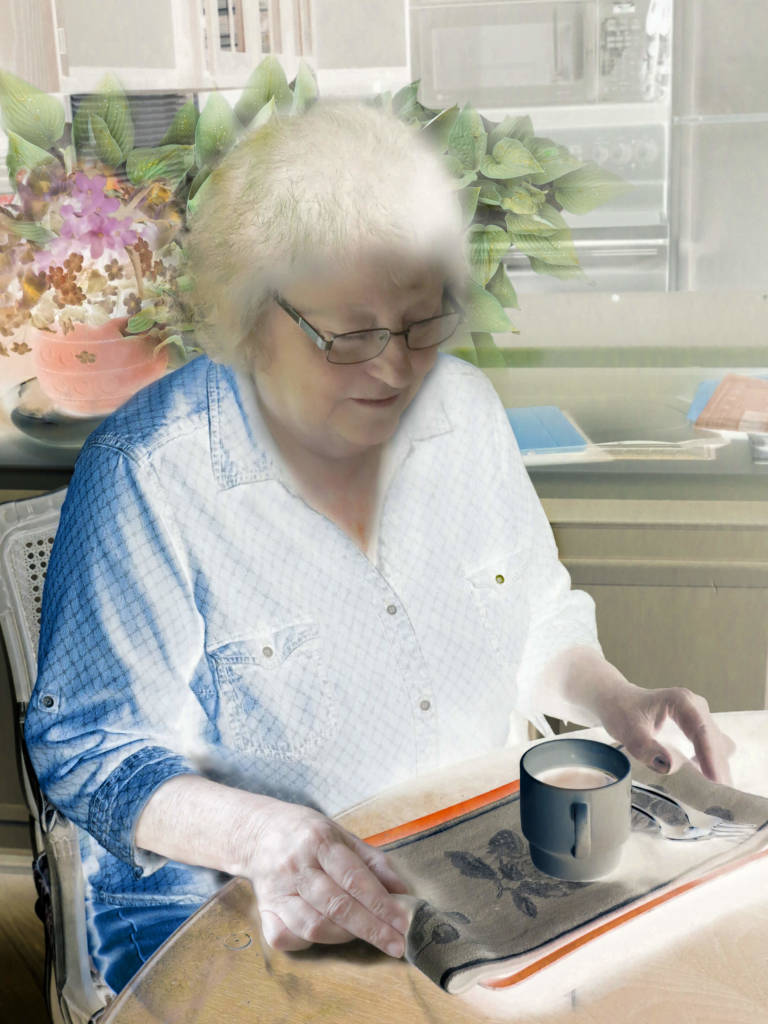 We are ALL dying. This is what I tell myself, driving to the hospice center to train to be a morning-shift kitchen volunteer. Even with weeks of hospice training, I’m still nervous about interacting with people who are dying. I don’t want them to see behind my eyes, the hidden thought: you might not be here when I return next week. So I keep telling myself we’re All leaving town sooner or later – some of us just have an earlier flight.
We are ALL dying. This is what I tell myself, driving to the hospice center to train to be a morning-shift kitchen volunteer. Even with weeks of hospice training, I’m still nervous about interacting with people who are dying. I don’t want them to see behind my eyes, the hidden thought: you might not be here when I return next week. So I keep telling myself we’re All leaving town sooner or later – some of us just have an earlier flight.
Shadowing the Thursday-morning volunteer, I operate the sanitizing dishwasher and the coffee machine. She shows me where to find spatulas, and introduces me to the staff and the routine. Then she has me make an egg, my first egg for someone who is not in my immediate family.
“I’m not much of a cook,” I apologize before I’ve even cracked the shell. This might be someone’s last egg so I want it to be good.
“We’re all leaving town, we’re all leaving town,” I say to myself as I follow Thursday-Morning into a darkened room and place the tray with the egg and a tippy-cup of milk before a pale man in a hospital bed. I follow as we peek into rooms to offer breakfast.
When we return to the kitchen, a tall man in boxer shorts is rummaging about. He does not look like he’s dying. He looks like he’s hungry.
“Are you finding what you need?” Thursday-Morning asks. The man walks out with a big bowl of chocolate ice cream.
“That’s my kind of breakfast,” I say to him. But he is focused on his dish.
A white-haired woman sits at the dining room table waiting for her eggs. I bring her coffee on a tray hoping she won’t get impatient as I scramble around to help Thursday-Morning make a perfect egg and piece of toast. The woman is very polite to me. She’s not scary at all. And she’s in no hurry.
When the morning shift is over I drag my feet saying goodbye. I find myself smiling, looking forward to the next time.
Then, in my car heading home, I have a flashback of long ago breakfast trays with bright cloth napkins, jolly eggs and toast, and smoothies. To coax my daughter out of bed for high school, and later for morning drives to the hospital, I’d bring her breakfast-in-bed trays.
“Mom, you make the worst pancakes,” she used to say.
I cry when I remember. Marika, do you believe this? Look where I am. I’m gonna make breakfast trays for all these people now.
But I quickly wipe my tears. There’s something else to worry about now: when I do my kitchen shift, what if they ask me to make pancakes?